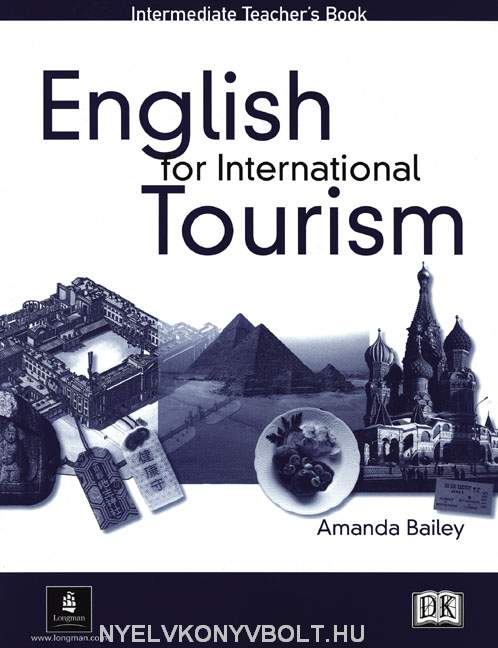English For International Tourism Book Free Download
Posted : adminOn 10/15/2017
Contents • • • • • • • • • • Etymology The origin of the word 'travel' is most likely lost to history. The term 'travel' may originate from the word travail, which means 'work'. Activation Key For Kaspersky Workstation 6. According to the Merriam Webster dictionary, the first known use of the word travel was in the 14th century. It also states that the word comes from Middle English travailen, travelen (which means to torment, labor, strive, journey) and earlier from Old French travailler (which means to work strenuously, toil).

Nov 8, 2017 - 53 secRead English for International Tourism Pre-Intermediate New Edition Workbook without Key. English for International Tourism is 100% new edition of a popular series designed to meet the English-language needs of professionals working in the. Visit the course website to find more information about the course, browse through sample materials and access teacher's book and tests available in the online format! That is why English is so important for people who work in tourism. English has become an international language. Do you already have a job in the tourism industry? Knowing tourism English will make it easier for you to communicate with other people and do your job better. Are you interested in working in the tourism.
In English we still occasionally use the words 'travail', which means struggle. According to Simon Winchester in his book The Best Travelers' Tales (2004), the words 'travel' and 'travail' both share an even more ancient root: a Roman instrument of torture called the tripalium (in Latin it means 'three stakes', as in to impale). This link may reflect the extreme difficulty of travel in ancient times. Today, travel may or may not be much easier depending upon the destination you choose (e.g., the ), how you plan to get there (,, or ), and whether you decide to 'rough it' (see and ). 'There's a big difference between simply being a tourist and being a true world traveler', notes travel writer Michael Kasum. This is, however, a contested distinction as academic work on the cultures and sociology of travel has noted. Purpose and motivation.
Travel – Passengers on a train on a bridge of the, between and, in, Reasons for traveling include, or, travel the gathering of information, visiting people, for, to begin life somewhere else, religious and,,,, and other reasons, such as to obtain health care or waging or or for the enjoyment of traveling. Travellers may use such as or; or, such as,, and. Motives for travel include: • pleasure • • and, • getting to know other • taking personal time for building Geographic types Travel may be local, regional, national (domestic). In some countries, non-local internal travel may require an, while international travel typically requires a and. A trip may also be part of a round-trip, which is a particular type of travel whereby a person moves from one location to another and returns. History of travel. Free Numerologist Charts.
This section needs expansion. You can help. (August 2016) While early travel tended to be slower, more dangerous, and more dominated by trade and migration, cultural and technological advances over many years have tended to mean that travel has become easier and more accessible. Mankind has come a long way in transportation ever since Christopher Columbus sailed to the new world from England in 1492, an expedition which took over 10 weeks to arrive at the final destination; to the present day where anyone can go, buy a plane ticket, and fly like a bird to what is now called The United States of America overnight While travel in the offered hardships and challenges, it was important to the economy and to society. The depended (for example) on dealing with/through or sea-voyagers, end-user often demanded the services of many itinerant wandering from village to hamlet, (Wandering Monks) and wandering brought and to neglected areas, practiced the never-ending tour, and armies ranged far and wide in various crusades and in sundry other wars. Pilgrimages involved streams of travellers both locally (-style) and internationally.